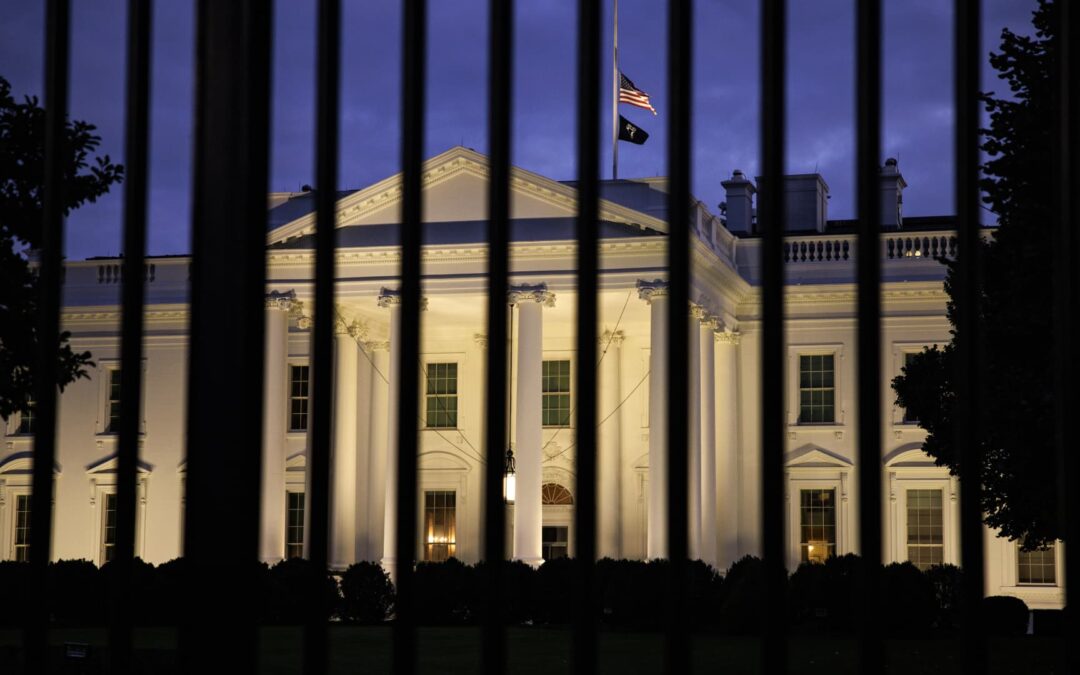The White House is seen at dusk on September 30, 2023 in Washington, DC.
Samuel Corum | Getty Images
Moody’s Investors Service on Friday lowered its ratings outlook on the United States’ government to negative from stable, pointing to rising risks to the nation’s fiscal strength.
The ratings agency has affirmed the long-term issuer and senior unsecured ratings of the U.S. at Aaa.
“In the context of higher interest rates, without effective fiscal policy measures to reduce government spending or increase revenues,” the agency said. “Moody’s expects that the US’ fiscal deficits will remain very large, significantly weakening debt affordability.”
Brinkmanship in Washington has also been a contributing factor, Moody’s said.
“Continued political polarization within US Congress raises the risk that successive governments will not be able to reach consensus on a fiscal plan to slow the decline in debt affordability,” the ratings agency said.
As far as keeping the nation’s ratings at Aaa, Moody’s said that it expects the U.S. to “retain its exceptional economic strength.” “Further positive growth surprises over the medium term could at least slow the deterioration in debt affordability,” the agency said.
“While the statement by Moody’s maintains the United States’ Aaa rating, we disagree with the shift to a negative outlook,” said Deputy Secretary of the Treasury Wally Adeyemo in a statement. “The American economy remains strong, and Treasury securities are the world’s preeminent safe and liquid asset.”
Moody’s move to cut its outlook arrives as Congress faces the looming threat of a government shutdown once more. For now, the government is funded through Nov. 17, but lawmakers in Washington remain at loggerheads over a bill ahead of the deadline.
Newly elected House Speaker Mike Johnson (R-La.) has indicated that he will release a Republican government funding plan on Saturday, a move that would permit members time to read it before an expected Tuesday vote on the measure.
But his plan to fund certain parts of the government through Dec. 7, and other parts through Jan. 19, known as a laddered continuing resolution, or CR, is dead on arrival in the White House and in the Democratic-controlled Senate.
“Moody’s decision to change the U.S. outlook is yet another consequence of Congressional Republican extremism and dysfunction,” White House press secretary Karine Jean-Pierre said in a statement.
Back in August, Fitch cut the U.S. long-term foreign currency issuer default rating to AA+ from AAA, citing “expected fiscal deterioration over the next three years,” as well as an erosion of governance and a growing debt burden.
Feuding in Washington was also an issue. “The repeated debt-limit political standoffs and last-minute resolutions have eroded confidence in fiscal management,” Fitch said at the time.








